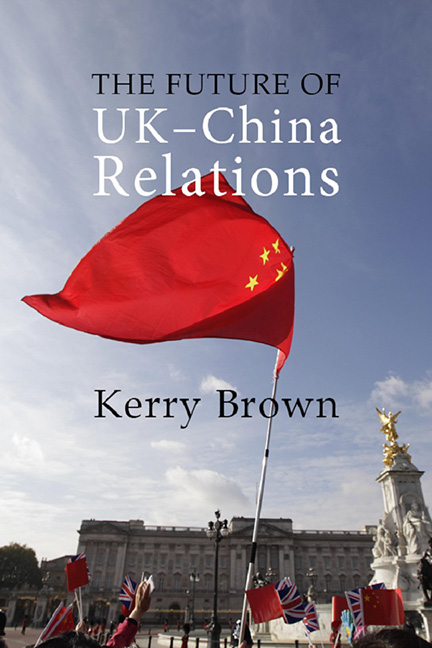Book contents
- Frontmatter
- Dedication
- Contents
- Dedication
- Preface
- Foreword by Tim Clissold
- Introduction
- 1 Tales from the golden age
- 2 What does China want? The case of the UK
- 3 Walk on by: what does Britain really want from China?
- 4 Who cares? The China circle in Britain
- 5 The good, the bad, and the Brexit: the UK and China outside the EU
- 6 The UK and China: scenarios for the coming decade
- Appendix: the UK’China balance sheet
- Further reading
- Notes
- Index
Foreword by Tim Clissold
Published online by Cambridge University Press: 24 August 2023
- Frontmatter
- Dedication
- Contents
- Dedication
- Preface
- Foreword by Tim Clissold
- Introduction
- 1 Tales from the golden age
- 2 What does China want? The case of the UK
- 3 Walk on by: what does Britain really want from China?
- 4 Who cares? The China circle in Britain
- 5 The good, the bad, and the Brexit: the UK and China outside the EU
- 6 The UK and China: scenarios for the coming decade
- Appendix: the UK’China balance sheet
- Further reading
- Notes
- Index
Summary
Not many years ago, a visiting politician made an important speech in Paris. His words are worth recalling:
When I was a young man, I developed a keen interest in French culture, particularly French history, philosophy, literature and art. By reading Montesquieu, Voltaire and Rousseau, I deepened my understanding of how progress of the mind propels progress in society. By reading Molière, Balzac and Hugo, I have better appreciated life with all its joys and sorrows. Learning about French culture has also helped me better appreciate both my own culture and the profound nature and rich diversity of human civilizations.
The man who uttered those words was Xi Jinping, the president of China.
I can’t think of any British business or political leader who could visit China and demonstrate the same level of understanding – or even interest – in the Chinese civilization. And yet this detailed level of knowledge about Western culture is not unusual for a Chinese politician. When Wen Jiabao, the Chinese premier, came to visit David Cameron, he brought a copy of a book by Adam Smith. But he did not bring Smith’s Enquiry into the Wealth of Nations, where he famously likened the market to an “invisible hand” determining prices. Instead, Wen brought The Theory of Moral Sentiments – much less well known in the West – which suggests proper limits on the market, and he quoted from it at length. Wen’s first request was to visit Stratford-upon-Avon where he asked to see a performance of King Lear: “I read and re-read many of Shakespeare’s plays as a young man,” he said, “such as Hamlet, Twelfth Night, Othello and King Lear. His works were not to be read only once or even ten times. They must be read up to a hundred times to be fully understood.” The Wall Street Journal thought that Wen was making a wider point, when it reported:
Mr Wen also delivered a political message during his Shakespeare outing, noting that China also has great literary works. “By reading about China’s history and culture,” he said, “you will learn more about my country and the road it has traveled, including how it became strong and powerful and the great sufferings it has gone through.
- Type
- Chapter
- Information
- The Future of UK-China RelationsThe Search for a New Model, pp. xiii - xviPublisher: Agenda PublishingPrint publication year: 2019

